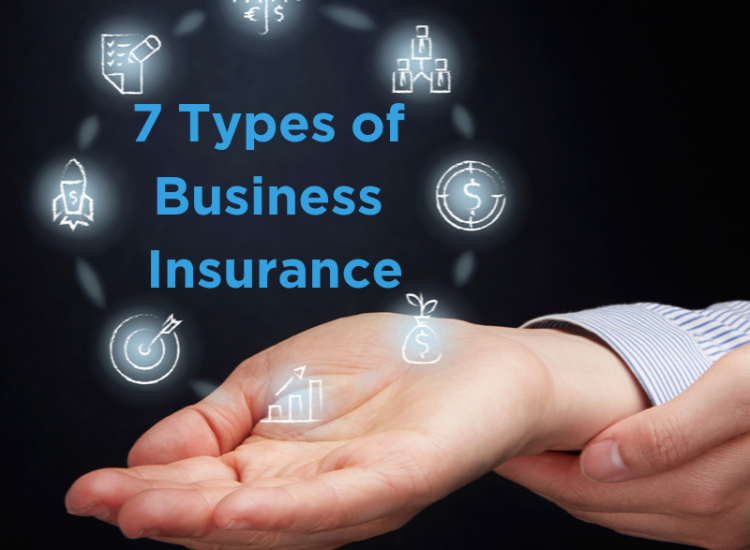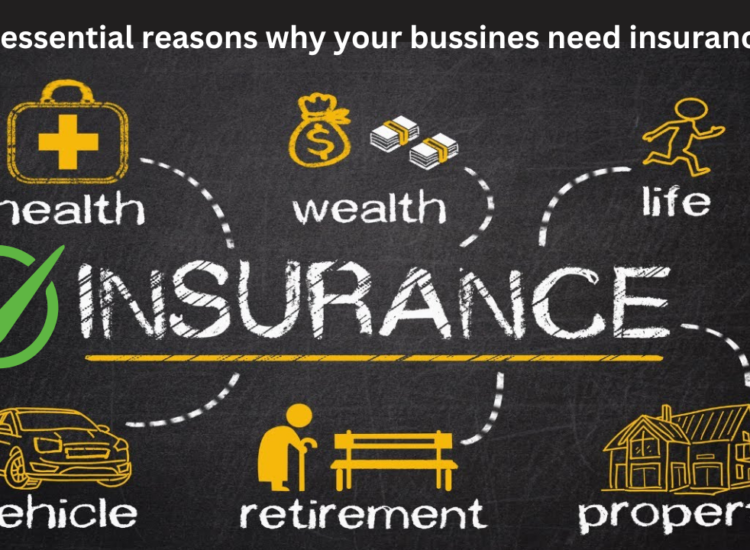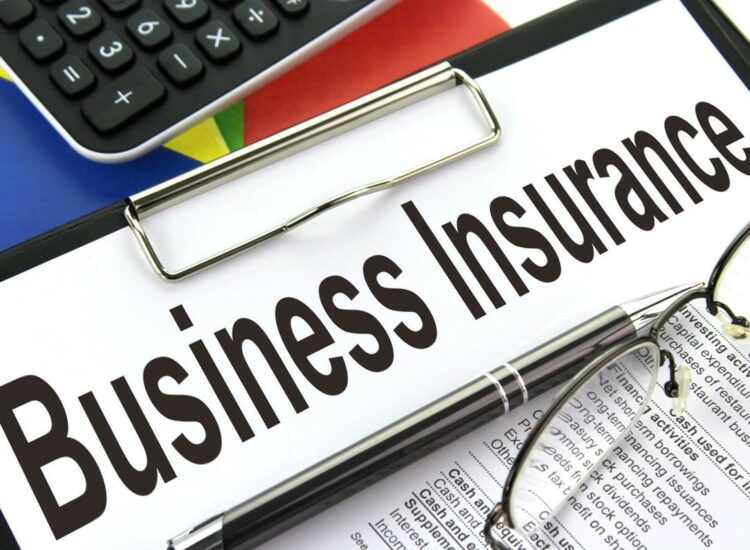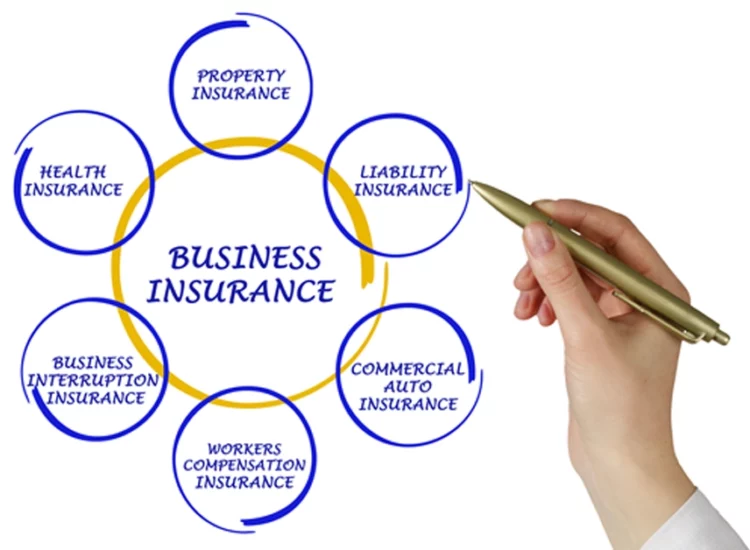Protecting Your Foundation: A Comprehensive Guide to Business Insurance
Starting and running a business is a journey filled with ambition, innovation, and, inevitably, a degree of risk. While meticulous planning and hard work can pave the way for success, unforeseen events can pose significant threats to even the most resilient enterprises. This is where business insurance steps in – acting as a crucial safety net, shielding your company from potentially devastating financial losses. In today’s competitive landscape, understanding the intricacies of business insurance is not just a matter of compliance, but a fundamental element of sound business strategy. This comprehensive guide will explore the essentials of business insurance, navigate the different types of coverage available, and provide insights into strategizing your insurance needs for optimal protection.
Toc

Understanding the Essentials of Business Insurance
What is Business Insurance and Why is it Crucial?
At its core, business insurance is a contract between your company and an insurance provider, where you pay a regular premium in exchange for financial protection against specific risks. These risks can range from property damage and liability claims to professional errors and employee injuries. Think of it as a financial shield designed to absorb the impact of unexpected events that could otherwise cripple or even close your business.
The importance of business insurance cannot be overstated. It offers several critical benefits:
- Financial Protection: It safeguards your business from significant financial losses arising from lawsuits, property damage, or other covered events. This protection allows you to continue operating and recover from setbacks without jeopardizing your personal assets or the future of your company.
- Legal Compliance: Depending on your industry, location, and the number of employees you have, certain types of business insurance, such as workers’ compensation, may be legally mandated. Having the required coverage ensures you are operating within the bounds of the law and avoiding potential penalties.
- Enhanced Credibility: Having comprehensive business insurance can enhance your company’s credibility in the eyes of clients, partners, and investors. It demonstrates that you are a responsible and prepared organization that takes potential risks seriously.
- Peace of Mind: Knowing that your business is protected against a range of potential threats can provide invaluable peace of mind, allowing you to focus on growth and innovation without the constant worry of unforeseen disasters.
- Contractual Requirements: Many contracts, especially those with larger organizations or government entities, require businesses to have specific types and levels of insurance coverage before they can be awarded the contract.
Key Considerations When Choosing Business Insurance
Selecting the right business insurance can feel overwhelming, given the variety of options available. However, focusing on a few key considerations can help you navigate the process effectively:
- Analyze Your Risk: The first step is to thoroughly assess the specific risks your business faces. This involves identifying potential liabilities, the value of your assets, and the unique challenges of your industry. Different industries inherently carry different risks. For example, a construction company faces different risks than a software development firm.
- Understand Your Coverage Needs: Based on your risk assessment, determine the types and levels of coverage that are most appropriate for your business. Don’t just opt for the cheapest policy; ensure it provides adequate protection for your specific circumstances. Overestimating your insurance needs might be prudent in some cases, as a significant lawsuit could be financially devastating.
- Compare Insurance Costs: Obtain quotes from multiple insurance providers to compare coverage options and costs. Remember that the cheapest policy might not always be the best, so carefully evaluate what each policy offers in relation to its price. Consider bundling policies, such as a Business Owner’s Policy (BOP), which can often offer cost savings by combining several types of coverage.
- Review Your Policies Thoroughly: Insurance policies can be complex, filled with jargon and exclusions. It is crucial to read your policy documents carefully to understand what is and isn’t covered, the policy limits, and your responsibilities as the policyholder. Understanding policy exclusions is vital to identify potential insurance gaps.
- Consider Scalability: As your business grows and changes, your insurance needs will likely evolve as well. Look for scalable insurance plans that offer the flexibility to adjust coverage as your company expands or your operations change.
- Seek Professional Advice: Working with an experienced insurance broker or agent who specializes in business insurance can be incredibly beneficial. They can help you assess your risks, understand your coverage options, and find the best policies for your specific needs. Choose an insurer you trust.
The world of business insurance offers a wide range of coverage options tailored to address various potential risks. Understanding the different types of policies is essential for building a comprehensive protection plan for your business.
General Liability Insurance: Protecting Against Everyday Risks
General Liability Insurance is often considered the cornerstone of business insurance. It provides protection against third-party claims of bodily injury, property damage, and certain advertising injuries (like slander or copyright infringement) allegedly caused by your business operations, products, or employees.
Key aspects of General Liability Insurance include:
- Bodily Injury Liability: Covers medical expenses, lost wages, and other damages if someone gets injured on your business premises or due to your business activities.
- Property Damage Liability: Covers the costs to repair or replace someone else’s property that is damaged by your business operations.
- Advertising Injury Liability: Protects your business if you are sued for libel, slander, copyright infringement, or other advertising-related offenses.
- Defense Costs: General liability policies typically cover the legal costs associated with defending against covered claims, regardless of the outcome.
This type of insurance is crucial for almost every business, as it addresses fundamental risks associated with interacting with the public and conducting daily operations.
Commercial Property Insurance: Safeguarding Your Assets
Commercial Property Insurance protects your business’s physical assets from damage or loss due to covered perils such as fire, theft, windstorms, and other natural disasters. This coverage is essential for businesses that own or lease physical premises, equipment, inventory, or furniture.
Key features of Commercial Property Insurance include coverage for:
- Buildings: If you own your business premises, this covers damage to the building itself.
- Contents: This includes your business personal property, such as equipment, inventory, furniture, and supplies.
- Business Interruption: This crucial coverage can help replace lost income and cover operating expenses if your business is forced to temporarily close due to a covered loss.
The specific perils covered and the limits of the policy will vary, so it’s important to review the details carefully and ensure it adequately protects the value of your business assets.
Professional Liability Insurance (Errors & Omissions): Addressing Service-Based Risks
For businesses that provide professional services, such as consultants, accountants, lawyers, and IT professionals, Professional Liability Insurance, also known as Errors & Omissions (E&O) insurance, is vital. This coverage protects your business against claims alleging negligence, errors, or omissions in the professional services you provide that cause a client financial harm.
Key aspects of Professional Liability Insurance include coverage for:
- Negligence Claims: If a client alleges that your professional advice or services were inadequate or caused them financial loss.
- Errors and Omissions: Mistakes or oversights in your work that lead to financial damages for a client.
- Defense Costs: Similar to general liability, E&O policies typically cover the costs of defending against covered claims, even if the allegations are unfounded.
This type of insurance acknowledges that even the most competent professionals can make mistakes or face allegations of negligence, and it provides crucial financial protection in such situations.
Workers’ Compensation Insurance: Covering Your Employees
If your business employs staff, Workers’ Compensation Insurance is typically a legal requirement and provides coverage for medical expenses and lost wages for employees who suffer work-related injuries or illnesses. This coverage protects both the employee and the employer. Employees receive benefits without having to prove fault, and employers are protected from potential lawsuits related to workplace injuries.
Key benefits of Workers’ Compensation Insurance include coverage for:
- Medical Expenses: Pays for the necessary medical treatment for work-related injuries or illnesses.
- Lost Wages: Provides partial wage replacement for employees who are unable to work due to a covered injury or illness.
- Rehabilitation Costs: May cover the costs of rehabilitation services to help employees recover and return to work.
- Death Benefits: Provides benefits to the dependents of an employee who dies as a result of a work-related injury or illness.
Ensuring you have adequate workers’ compensation coverage is not only a legal obligation in most states but also a responsible way to protect your employees and your business.
Strategizing Your Business Insurance Needs for Optimal Protection
Once you understand the essentials of business insurance and the various types of coverage available, the next crucial step is to strategize your insurance needs to ensure optimal protection for your specific business.

Assessing Your Business Risks and Identifying Coverage Gaps
A proactive approach to risk management is fundamental to developing an effective business insurance strategy. This involves a thorough assessment of all potential risks your business might face. Consider both common risks, such as property damage and liability, as well as industry-specific risks.
To effectively assess your business risks:
- Assemble a Cross-Functional Team: Involve individuals from various departments within your organization to gain a wide range of perspectives on potential risks.
- Identify All Relevant Assets and Exposures: This includes physical assets, intellectual property, data, and potential liabilities arising from your operations, products, or services.
- Evaluate the Likelihood and Severity of Each Risk: Determine how probable each risk is and the potential financial impact it could have on your business.
- Prioritize Risks: Focus on the risks that are most likely to occur and would have the most significant impact.
- Identify Coverage Gaps: Once you have a clear understanding of your risks, review your existing insurance policies to identify any areas where you might be underinsured or lack coverage altogether. Look for exclusions in your policies that might leave you vulnerable.
Working with an Insurance Provider to Customize Your Policy
Choosing the right insurance provider and working closely with them is crucial for tailoring your business insurance policy to your specific needs. An experienced insurance broker or agent can act as your trusted advisor, guiding you through the complexities of insurance and helping you make informed decisions.
When working with an insurance provider:
- Be Transparent and Provide Accurate Information: Ensure you provide complete and accurate information about your business operations, assets, and risks to help the insurer understand your specific needs.
- Ask Questions and Seek Clarification: Don’t hesitate to ask your agent to explain any aspects of the policy you don’t understand, including coverage details, exclusions, and limitations.
- Discuss Your Risk Assessment: Share the findings of your business risk assessment with your insurance provider to ensure they have a comprehensive understanding of your potential exposures.
- Explore Different Coverage Options and Limits: Work with your agent to determine the appropriate types and levels of coverage for your business. Discuss different policy limits and deductibles to find a balance between adequate protection and affordability.
- Consider a Business Owner’s Policy (BOP): A BOP can often be a cost-effective way to bundle essential coverages like general liability and commercial property insurance for small to medium-sized businesses.
- Understand the Claims Process: Familiarize yourself with the insurance provider’s claims process so you know what to do in the event of a loss.
Regularly Reviewing and Updating Your Business Insurance Coverage
Your business is a dynamic entity that will inevitably experience changes over time. These changes can impact your insurance needs, making it essential to review and update your business insurance coverage regularly.
Here are some situations that might necessitate a review of your insurance policy:
- Business Growth: Expanding your operations, hiring more employees, or acquiring new assets can increase your insurance needs.
- New Products or Services: Introducing new offerings can expose your business to different types of risks.
- Change in Location: Moving your business premises can affect your property insurance needs and potential liabilities.
- Significant Purchases: Acquiring new equipment or vehicles will require adjustments to your coverage.
- Changes in Regulations: Insurance regulations and legal requirements can change over time, so it’s important to stay informed.
- Annual Review: It’s a good practice to review your business insurance policies at least once a year to ensure that your coverage remains adequate and aligned with your current needs. This regular review can also help identify opportunities to remove unnecessary coverage or adjust your policies for potential cost savings.
By proactively managing your business insurance and regularly reviewing your coverage, you can ensure that your company remains protected against the evolving landscape of risks. Business insurance is not just an expense; it is a vital investment in the long-term sustainability and success of your enterprise. By understanding its essentials, navigating the various coverage options, and strategizing your needs effectively, you can build a robust safety net that allows you to pursue your business goals with confidence.












